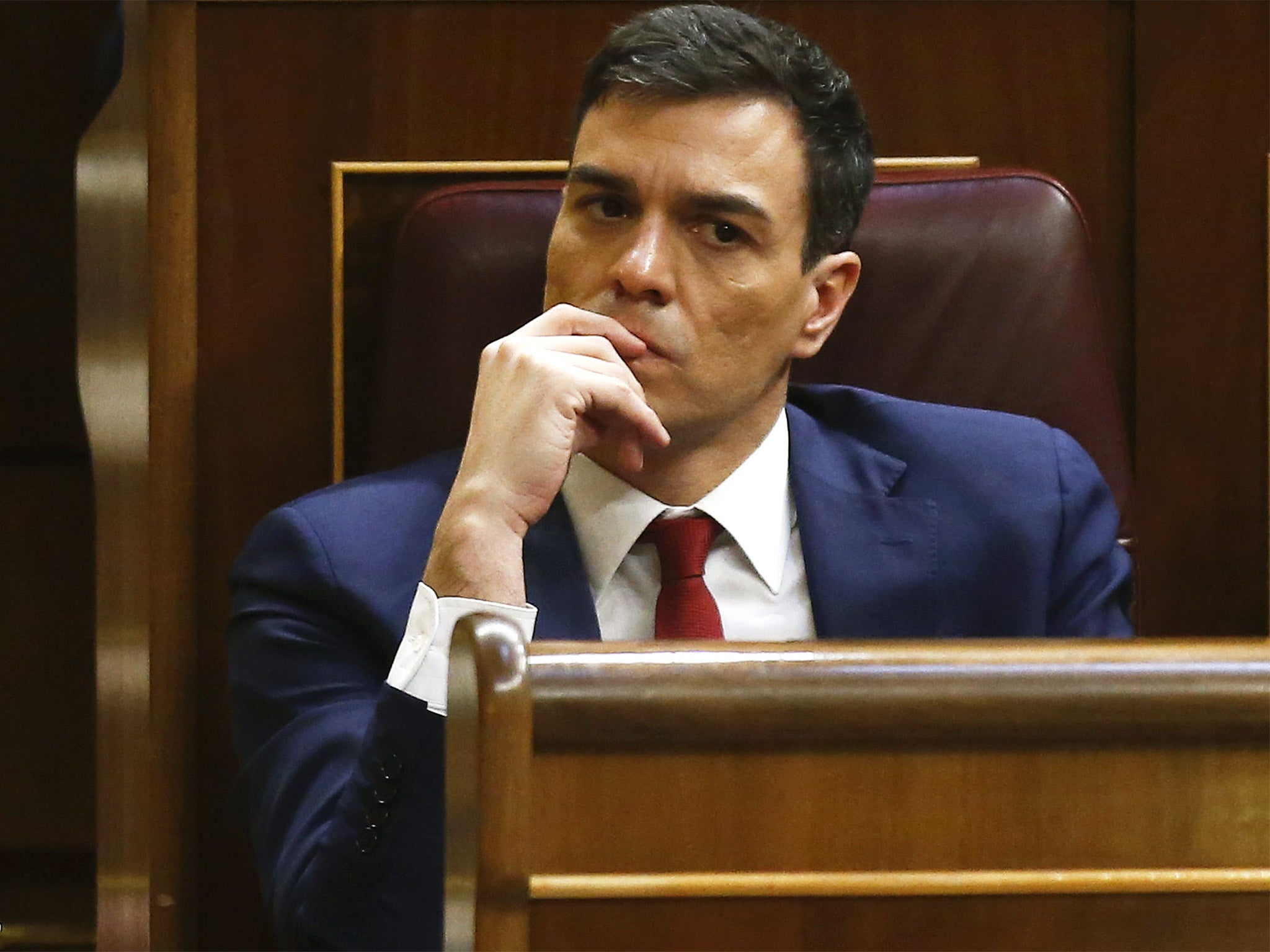Spanish politics: Crisis deepens as hunt for new prime minister falters and raises possibility of new elections
No party has an overall majority and parliament refuses to endorse Socialist leader, Pedro Sanchez

Spain’s political crisis has deepened as the country’s parliament refused to endorse the Socialist opposition leader, Pedro Sanchez, as the new Prime Minister.
More than two months after an inconclusive general election, Mr Sanchez fell well short of the majority he needs to form a government.
He won 130 votes, with 219 against and one abstention as the conservative Partido Popular (PP) was joined by the left-wing Podemos and regional parties to block his accession. Only one other party, the centrist Ciudadanos, was willing to back Mr Sanchez.
It means that MPs will vote again on Friday night, at which point abstentions will not count against him.
Failure to secure the premiership will trigger a two-month countdown to the calling of new elections. During the first day of the investiture debate on Tuesday, Mr Sanchez called on Spain’s progressive parties to come together and deny the centre-right government of the PP the chance to continue.
“Why don’t we unite to form a government for change? Why don’t we get together and pass as many reforms as possible to solve the most urgent problems of Spaniards?” he asked. “Why don’t we vote together in favour of all issues in which we are in agreement?”
The problem for each political leader is that none can muster the support needed to command parliament after December’s general election. The four biggest parties each fell well short of the 179 seats needed for a majority. The PP, which has remained in caretaker charge, emerged as the biggest party, with 123 seats, 33 more than the Socialists. The leftist Podemos took 69 seats, with Mr Sanchez’s prospective coalition partner, Ciudadanos, winning 40.
Mr Sanchez accepted the nomination for prime minister last month from King Felipe after the PP Prime Minister, Mariano Rajoy, turned it down. Mr Sanchez has been unable to persuade the Podemos leader, Pablo Iglesias, to join him. Mr Iglesias has promised the Catalan region a referendum on independence – anathema for many in Spain – and wants economic and social reforms to be deeper than Mr Sanchez is prepared to stomach.
Both want to see an end to the PP, which has been tainted by corruption scandals. Among many, the party is also considered toxic thanks to a raft of economic policies designed to fix Spain’s once disastrous public finances.
Mr Rajoy had hoped that he could persuade the Socialists and Ciudadanos to join him in a coalition to keep Podemos out. But the Prime Minister and Mr Sanchez are known to hold each other in contempt
Opinion polls suggest that a fresh election – likely to be held in June – would result in the parties holding a similar number of seats as now.
Join our commenting forum
Join thought-provoking conversations, follow other Independent readers and see their replies
Comments